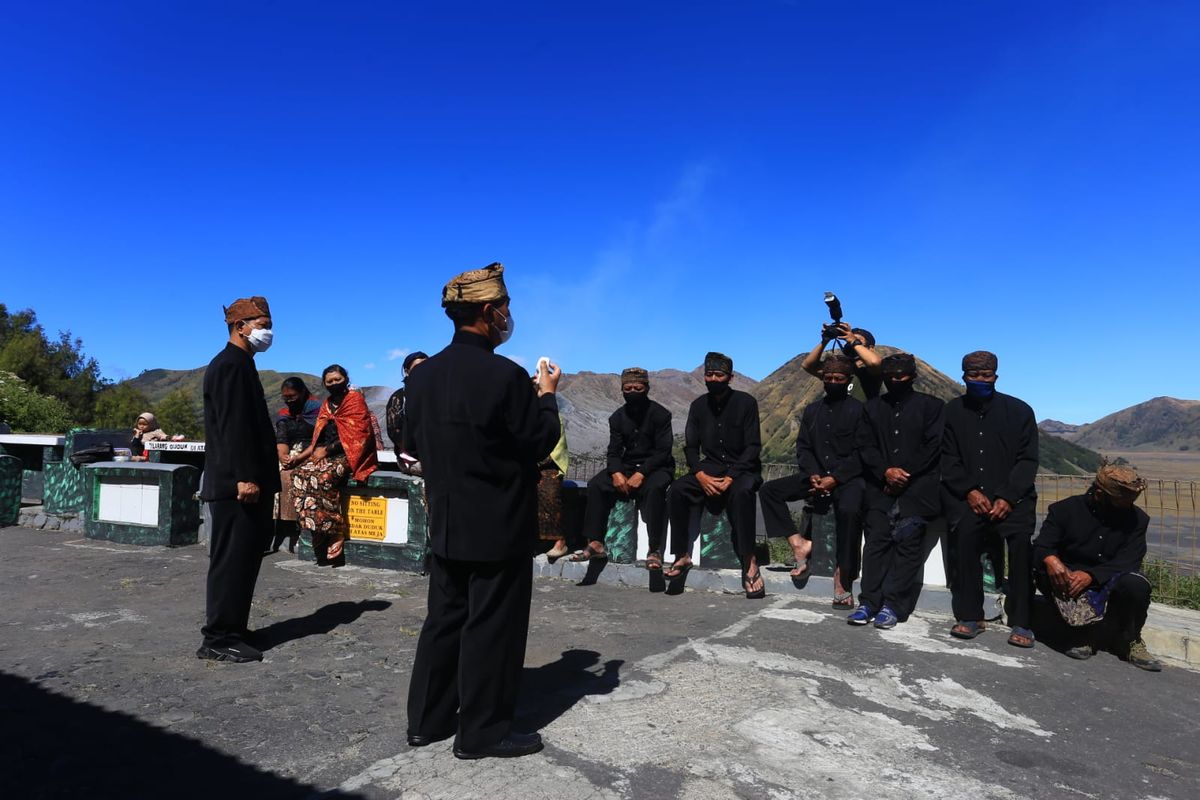Baca berita tanpa iklan. Gabung Kompas.com+
Thousands Flock to Indonesian Volcano for Hindu Ritual Sacrifice

Some members of the Tengger sub-ethnic group gather near the active Mount Bromo volcano in Probolinggo, East Java province.
Writer Dezy Rosalia Piri
| Editor Dezy Rosalia Piri
Legend has it their son willingly jumped into the volcano to guarantee the prosperity of the Tengger people.
The sacrifice tradition continues to this day, although the Tengger tribe sacrifices their harvest and farm animals instead of humans.
As local community chief Bambang lobbed his batch of crops into the volcanic crater, he prayed for harmonious relations between humans and God, nature, and their fellow human beings.
“If we take care of nature, it will take care of us as well,” he said.
Source: Agence France-Presse
Simak breaking news dan berita pilihan kami langsung di ponselmu. Pilih saluran andalanmu akses berita Kompas.com WhatsApp Channel : https://www.whatsapp.com/channel/0029VaFPbedBPzjZrk13HO3D. Pastikan kamu sudah install aplikasi WhatsApp ya.
There are no comments
Comment wisely and responsibly. Comments are entirely the responsibility of the commentator as regulated in the ITE Law
Thank You! We have received your report. We will remove comments that conflict with the Community Guidelines and the ITE Law.
More Headlines
Business
August 25, 2023, 07.58 PM
Taiwan's Semiconductor Industry: A Rising Powerhouse with Global Impact
News
April 14, 2023, 11.48 AM
3 Malaysian Nationals Missing after Boat Capsizes Near Indonesia’s Side of Borneo
News
April 13, 2023, 01.56 PM
Indonesia to Deploy Warships during ASEAN Summit in East Nusa Tenggara
News
April 12, 2023, 02.32 PM
Jakarta High Court Rejects Appeal of Ex-Police General Ferdy Sambo Facing Death Sentence
News
April 11, 2023, 05.26 PM
Indonesia Religious School Principal Named Suspect in 14 Students' Sexual Abuse
Culture
April 8, 2023, 05.52 PM
Centuries-old Indonesian Easter Tradition Returns after Pandemic Hiatus
News
April 8, 2023, 05.35 PM
Access to ASEAN Air Transportation Drives Bali's Tourism, Says Statistics Indonesia
Baca berita tanpa iklan. Gabung Kompas.com+
Baca berita tanpa iklan. Gabung Kompas.com+
IN CASE YOU MISSED
Baca berita tanpa iklan. Gabung Kompas.com+
Baca berita tanpa iklan. Gabung Kompas.com+
































